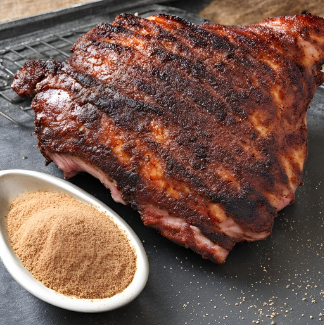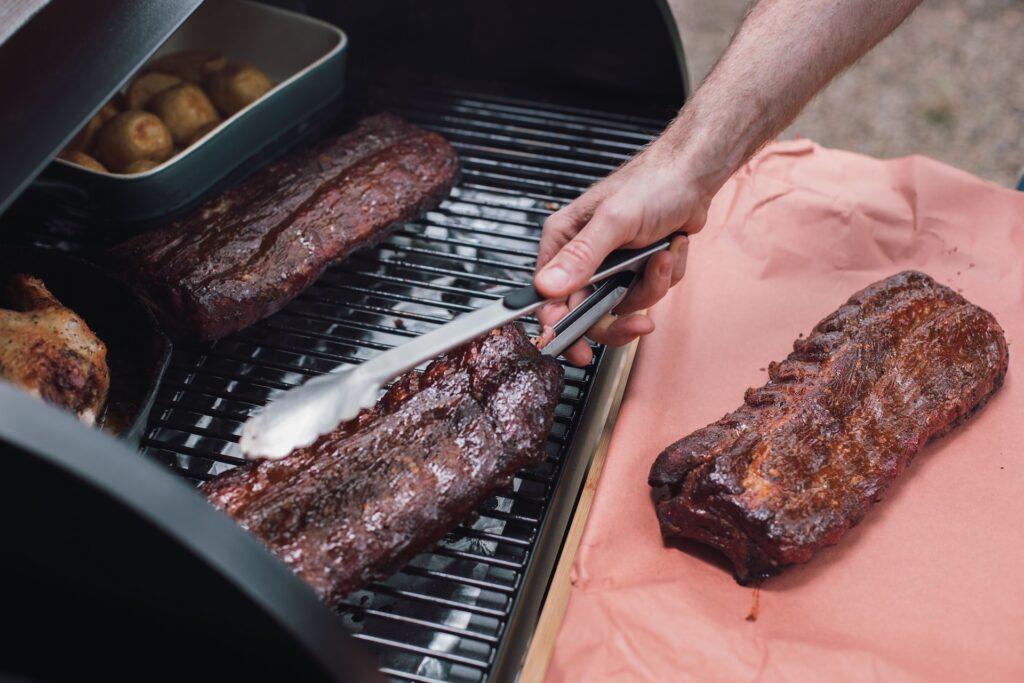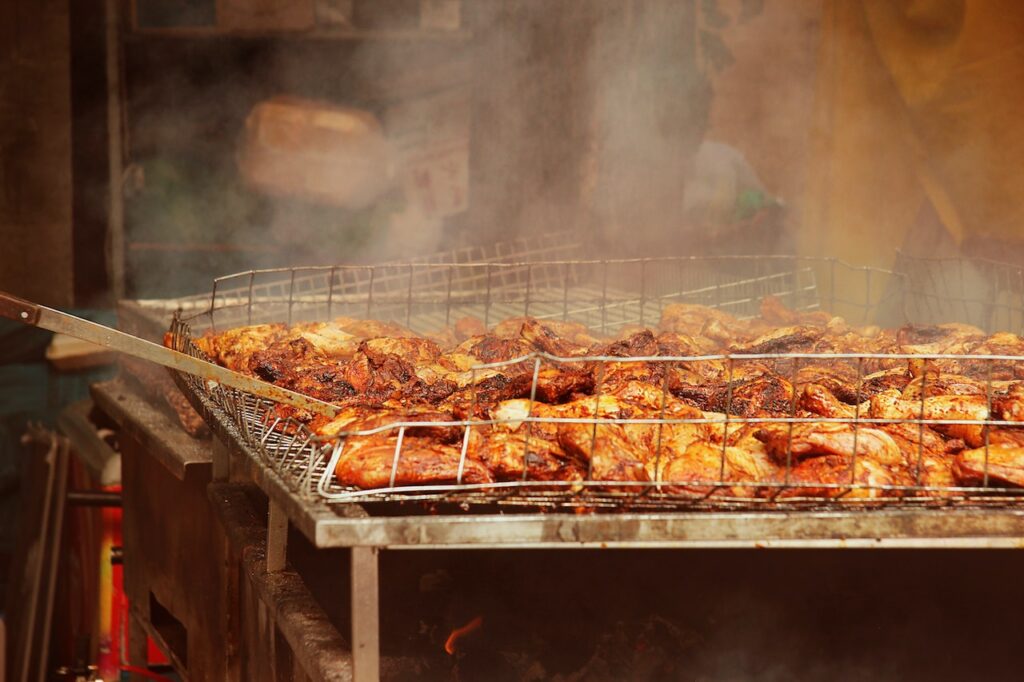Introduction
BBQ rubs are the secret weapon of many pitmasters and backyard grillers. They add flavor, create a beautiful crust, and can even help tenderize the meat. Today, we’re going to take a deep dive into our homemade pork BBQ rub recipe, exploring the flavors of each ingredient, the history of BBQ rubs, and the science behind how they work.
Ingredients and Flavors
- Brown Sugar: Brown sugar is a key ingredient in many BBQ rubs. It adds a sweet, molasses-like flavor that caramelizes beautifully when cooked, giving your pork a delicious, sticky glaze.
- Paprika: Paprika is made from ground dried peppers and adds a sweet, smoky flavor to your rub. It also gives your pork a beautiful, rich color.
- Black Pepper: Black pepper adds a classic, sharp heat that provides a nice contrast to the sweetness of the brown sugar and paprika.
- Salt: Salt enhances the flavors of the other ingredients and helps to tenderize the meat.
- Chili Powder: Chili powder adds a complex heat to your rub. It’s a blend of spices including ground chili peppers, garlic powder, onion powder, and sometimes cumin and oregano.
- Garlic Powder and Onion Powder: These add a savory depth of flavor that complements the sweetness of the brown sugar and the heat of the black pepper and chili powder.
- Cayenne Pepper: Cayenne pepper adds an extra kick of heat. If you like your BBQ spicy, feel free to add a bit more!
Optional Ingredients
- Cumin: Cumin adds a warm, earthy flavor and is often used in Tex-Mex style BBQ rubs.
- Mustard Powder: Mustard powder adds a tangy flavor that works well with pork.
- Smoked Paprika: If you want to add a deeper smoky flavor to your rub, try using smoked paprika instead of regular paprika.
- Dried Herbs: Dried herbs like oregano, thyme, or rosemary can add a nice herbal note to your rub.
History of BBQ Rubs
BBQ rubs have a long and storied history. They originated in the Caribbean and were brought to the American South by Spanish explorers. The term “barbecue” itself comes from the Caribbean word “barabicu,” which means “sacred fire pit.” Over time, different regions developed their own signature rubs, leading to the wide variety of BBQ styles we have today.
The Science Behind BBQ Rubs
BBQ rubs work by enhancing the flavors of the meat and forming a delicious crust, known as “bark,” when cooked. The salt in the rub helps to tenderize the meat by breaking down its proteins, while the sugar caramelizes to form the bark. The other spices and herbs add flavor and can even create a chemical reaction with the meat to further enhance its taste.
Conclusion
Creating your own homemade pork BBQ rub allows you to control the flavors and the quality of the ingredients. Don’t be afraid to experiment with different spices and herbs to create a rub that’s perfectly suited to your taste. Remember, the best BBQ rub is the one that you love the most!
Check out our friends at A Recipe Guide who helped craft this masterpiece



